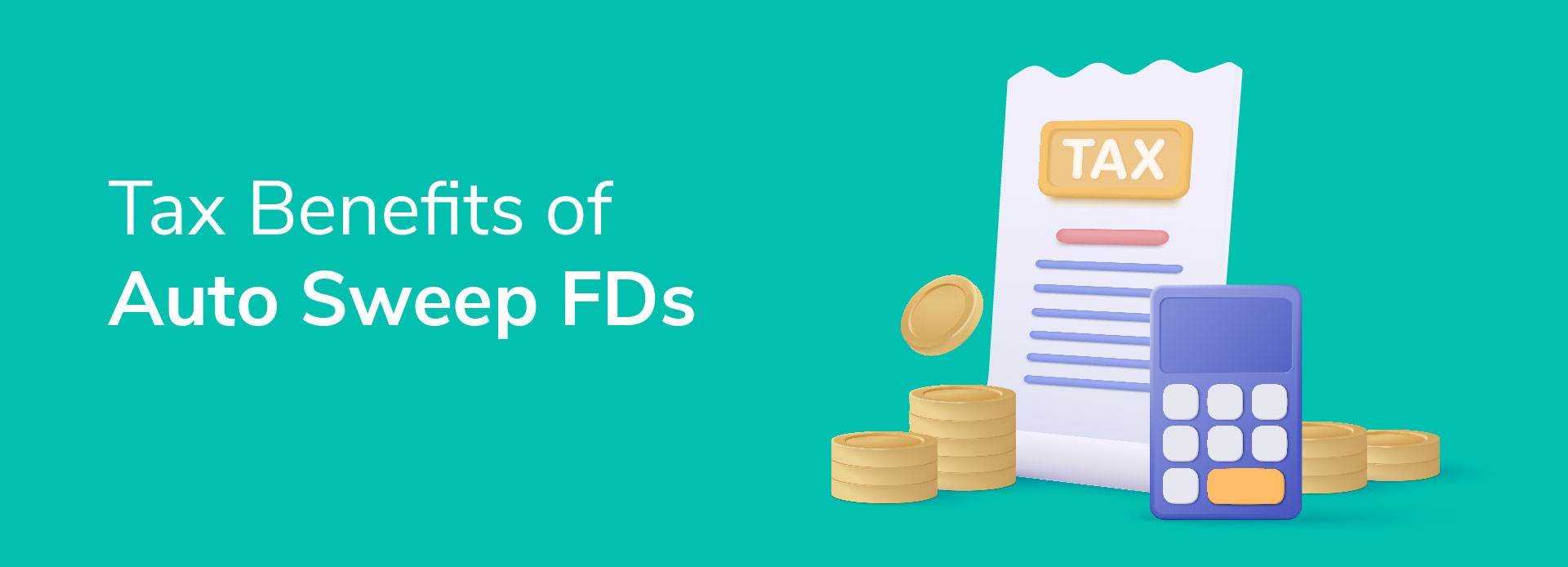
Exploring the Tax Benefits of Auto Sweep FDs
15 March 2024 | By INDIE
Who doesn’t want to see maximum returns on their money instead of it just sitting idly in the bank accounts? Everyone does and INDIE Auto Sweep FD is the solution! It is a powerful tool offered by IndusInd Bank’s INDIE for your savings account to get the best returns from your hard-earned money.
Let’s first understand what Auto Sweep Fixed Deposit means and how it works:
The auto-sweep facility is a unique financial product which combines the advantages of a savings account with the higher returns of a fixed deposit account. It essentially links your savings account to a fixed deposit account and any surplus amount in the savings account as per the defined limit is transferred automatically into the fixed deposit. This lets you enjoy higher interest returns without any change in your savings amount. Now that’s making your money work for more money, isn’t it?
When money is transferred from an account to a fixed deposit, the process is called “sweep-out”. However, when the balance in your account is below the set threshold, some funds are automatically transferred back to your account to help you manage your spending efficiently and smoothly. This is called sweep-in. Therefore, your account is always able to maintain an optimum balance which guarantees you maximised benefits.
The benefits’ list goes on…
Sweep-In facility can also help you avail tax benefits on fixed deposits. Think of this as a strategic tool for leveraging tax benefits while ensuring liquidity in your savings account. After all, tax optimization is a significant goal in any individual’s financial planning.
Since the tax on fixed deposit made through the FD sweep-in facility follows a complicated mechanism, let us guide you to understand it better.
Tax Benefits on Auto Sweep Fixed Deposits:
Interest Income Taxation: You can manage your tax on fixed deposit interest income in Sweep-In FDs as its flexible nature allows you to time your deposits strategically while minimising tax liability. This ensures that idle funds are not subject to lower interest rates applicable to regular savings accounts. You need to first assess your tax bracket to determine the best timing for depositing funds.
Tax Deductions:
Section 80TTA, The Income Tax Act, 1961 - While the interest earned on these FDs is taxable as per your income tax slab rate, the interest earned up to ₹10,000 in a financial year across such FDs is eligible for deduction under Section 80TTA of the Income Tax Act.
Section 80C, The Income Tax Act, 1961 - The principal amount invested in FDs for a tenure of five years or more qualifies for a deduction of up to Rs. 1.5 lakhs annually. That is how you as a taxpayer can optimise your tax liability by diversifying your investments.
Capital Gains Tax Planning: You can furthermore optimise capital gains tax via Auto Sweep FDs. They present a valuable opportunity by parking your surplus funds in FDs and help you potentially navigate your short-term capital gains tax liabilities on excess funds.
Diversifying investments across multiple FDs with varying tenures also helps stagger among maturity dates and maximise tax benefits. These tactics ensure that idle funds earn higher interest rates, enhancing your overall financial strategy
Thus, by regular monitoring, timed deposits and strategic diversification of your funds in an auto-sweep FD, you can mitigate tax risks and maximise your returns.
Make the right decision by choosing INDIE’s auto sweep FDs
FD Sweep-In facility stands as a powerful tool in your hands that allows you to enjoy the higher interest rates without the long commitment periods of Fixed Deposits. As you embark on your tax-saving journey, consider integrating INDIE’s Auto Sweep FDs into your financial strategy to unlock the full potential of tax optimization.
Get the best of both worlds and unlock the maximum potential of your financial world with INDIE by IndusInd Bank.





